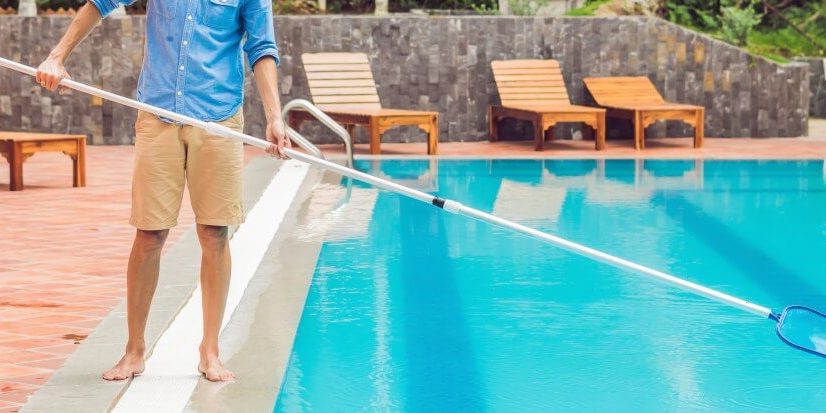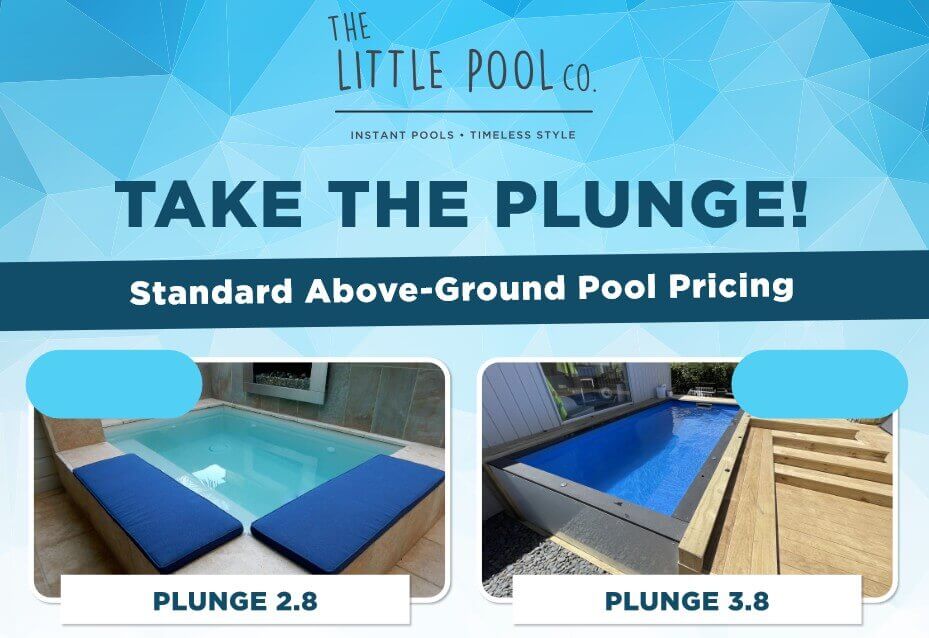Pool cleaning is an essential part of swimming pool ownership, but it can be a difficult and time-consuming task. However, there are a number of different options when it comes to pool cleaning systems.
Here we take a look at the various methods of pool cleaning, to give you an idea of what is involved and how you can make it easier for yourself.
Why pool cleaning is important
You might think that a good filtration system is all your pool needs. This is important, as it circulates the water, helping to minimise algae and regulate the pH levels in your pool, assisting in keeping your pool hygienic. However, a filtration system alone is not enough to ensure truly clean pool water.
Nor is it enough just to add chlorine or salt, as these clean the pool water, but can leave residue behind. Over time, this builds up, and due to the permanently damp conditions in your pool, it provides an ideal breeding ground for bacteria and algae, which compromise your pool’s hygiene and make it unsightly.
In addition, leaves and other debris can regularly find their way into your pool. These will not pass through the filtration system, and no chemicals will remove them, so you need to find a way to keep your pool clean and clutter-free if you want to continue to enjoy using your pool.
So, what are the different options available to you when it comes to pool cleaning, and which is the best to choose?
Manual pool cleaning
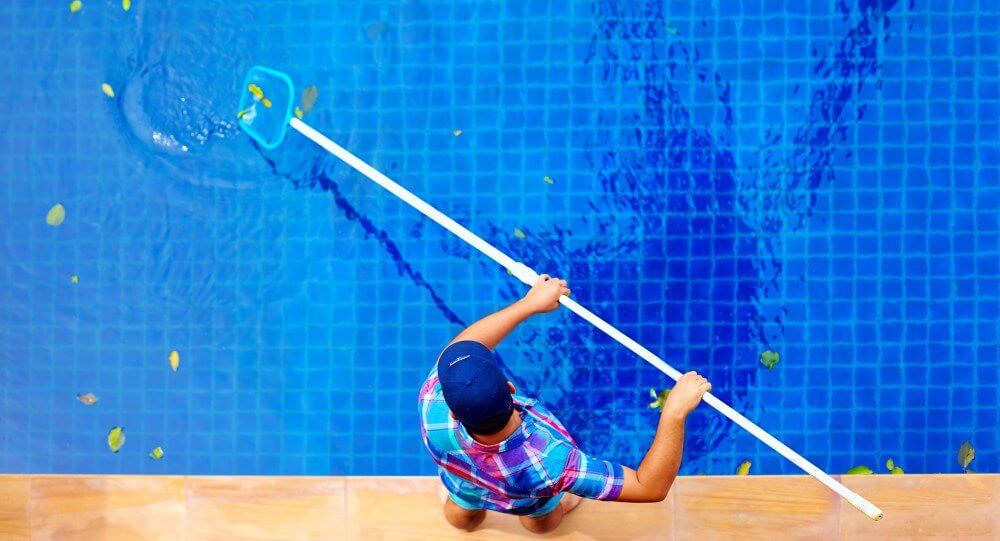
As its name suggests, manual pool cleaning involves a lot of time and effort on your part. If you do not have much free time and you want to enjoy your pool as often as possible, manual cleaning might not be ideal for you, particularly if you have a large pool.
If you do want to clean your pool manually, you will need several essential pieces of equipment, including:
- A telescopic pole which extends far enough so you can clean the walls and floor of your pool easily and safely;
- A skimmer net, which attaches to the telescopic pole so you can collect all the debris that has found its way into the pool;
- A pool brush, which you can attach to the pole to scrub dirt and algae from the pool’s walls and floor;
- A manual pool vacuum with a hose long enough to reach all areas of the pool, and a vacuum head which can be attached to your telescopic pole.
All this equipment needs to be good quality and suitable for the type of pool you have. For example, an unpainted concrete pool requires a brush with stainless steel and nylon bristles, while painted concrete or fibreglass pools should only be brushed with all-nylon brushes.
How often should you manually clean your pool?
Your pool will need regular cleaning to stay hygienic and safe for swimming. Ideally, it should be skimmed every day, brushed at least twice a week, and vacuumed every couple of days to make sure it remains free of debris, algae and bacteria.
Automatic pool cleaning systems
If manual cleaning sounds too much like hard work, this is completely understandable. It makes a lot more sense to invest in an automatic pool cleaning system if your pool is large or takes too much time and effort to clean.
While the initial cost of an automatic system is higher than purchasing manual pool cleaning equipment, it is a worthwhile investment, as it will save you huge amounts of time, leaving you with more free time to spend enjoying yourself in a healthy, clean pool.
There are three main types of automatic pool cleaning systems, which all work in different ways:
1. Suction side cleaners
These are the most affordable automatic pool cleaners. They hook up to your skimmer, which is the part of your pool filtration system that sucks the water out of the pool to be filtered.
A suction side cleaner is propelled by the motion of the water being sucked through it, so it can move around your pool floor collecting dirt and debris. Some suction side cleaners can also climb the walls of your pool.
Cheap to buy and economical to operate, suction side cleaners make pool cleaning much easier, and they are also fairly easy to clean and maintain. However, they can only work when the pool pump is running, and they can increase wear and tear on your pool filter.
2. Pressure side cleaners
Pressure side cleaners hook up to the opposite side of your filtration system, the return jets, which propel the filtered water back into your pool. These tend to be more expensive than suction side cleaners, as they are more sophisticated, having a filter bag and a sweep hose, which make them more effective at picking up debris and cleaning the pool.
The water being pushed out of the return jets moves the cleaner around and helps to loosen dirt and debris, which is pushed up into the filter bag of the pressure side cleaner. As a result, these are highly effective devices, but there are many different types available, so it is essential to choose a model which is appropriate and powerful enough for the type and size of pool you have.
3. Robotic cleaners
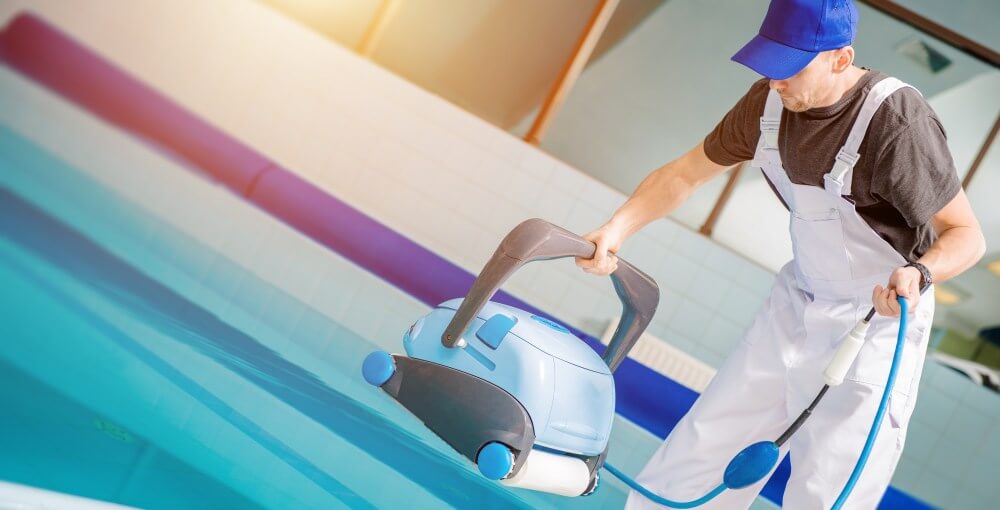
Robotic pool cleaners are the most sophisticated and effective of all automatic pool cleaning systems. They run on electricity, so they do not need to be attached to your pool’s filtration system at all.
While putting electrical equipment in water might sound dangerous, robotic pool cleaners operate on an extremely low voltage, and they have extra-long power cords. They can only be plugged into sockets which are designed to cut out automatically if any electrical imbalance is detected, so they can safely be used underwater without any risk to you.
Robotic pool cleaners cost more than other automatic pool cleaning systems, but they are still relatively affordable, and they are absolutely worth the money. They have their own brushes and vacuum attached, so they can scrub and clean every area of your pool, ridding it of all dirt and debris, and leaving you free to enjoy your sparkling clean pool without having to lift a finger!
Like all systems, however, a robotic cleaner still needs to be cleaned and maintained on a regular basis if you want it to keep working effectively for you.
Self-cleaning pools
Yes, there really is such a thing as a self-cleaning pool! This is the ultimate in easy pool maintenance and luxurious living, as your pool literally cleans itself, so there is no need to worry about purchasing and maintaining any extra equipment. Self-cleaning pools are also safer and more hygienic than any other pool cleaning method, due to the innovative way they work.
The self-cleaning pool was the brainchild of Compass Pools Australia, who developed the Vantage in-floor self-cleaning pool system for their fibreglass pools. This industry-leading system operates via a series of nozzles which are installed within the pool floor. They lie completely flush when not in use, so they do not cause any obstruction when swimming or spoil the appearance of the pool.
The nozzles release jets of freshly filtered water throughout the pool, pushing all dirt and debris into a designated cannister. The system can be set to activate at times of your choosing, so it does not have to interrupt your swimming time, and it operates completely silently, so you can activate it at night, enabling you to wake up to a clean pool.
Why a self-cleaning pool is more hygienic
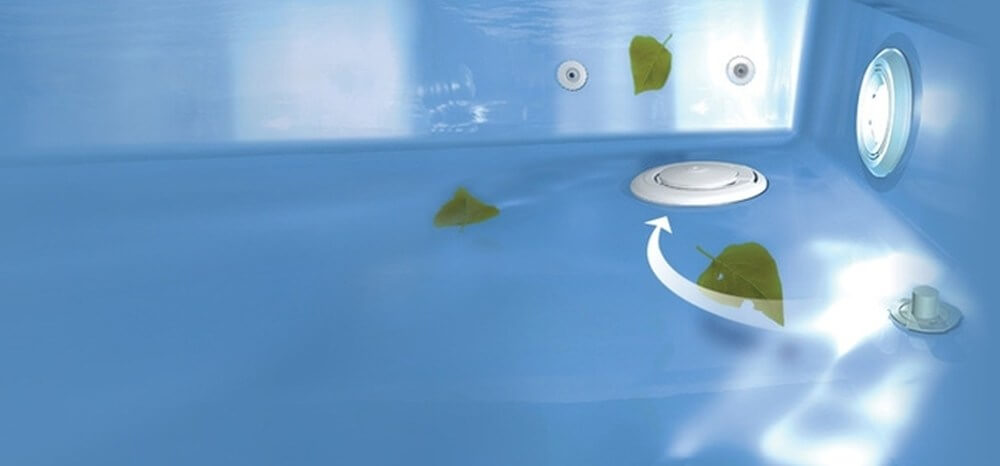
Compared to other pool cleaning systems, a self-cleaning pool is more hygienic, as it circulates the water from bottom to top, so every area of the pool is receiving clean pool water, giving bacteria and algae no chance to grow. This is different from conventional automated systems, which push the filtered water in at the surface of the pool, so only the top third of the water ever really gets circulated. In these circumstances, dirt and algae can take hold at the bottom of the pool.
Another huge advantage of this self-cleaning pool system is that, as well as cleaning your pool more thoroughly, it also circulates your pool chemicals more evenly, so fewer chemicals are required to clean the pool. This saves you money on pool supplies, and also creates a safer, healthier swimming environment with less of the irritating side effects of chlorine.
In addition, it makes your entire property safer for children, as there is no need to store large quantities of potentially harmful pool cleaning chemicals.
A self-cleaning pool really is the ultimate luxury, as it takes care of all aspects of pool cleaning for you. However, the Vantage system is completely exclusive to Compass Pools, and can only be requested as an option when purchasing one of their fibreglass pools. There are a number of self-cleaning pools on the market now, but all are exclusive to their own manufacturers, and a self-cleaning system cannot be fitted retrospectively to any type of swimming pool.
This means if you want a self-cleaning pool, this is a decision you have to make before you actually purchase a pool, as you have to choose a pool which can be made with a self-cleaning system fitted. It will save you considerable amounts of time, but it might not be available with a pool which suits your backyard, and it will cost you a significant amount of money.
What is the best pool cleaning system for Little Pools?
Little Pools are designed to be compact pool solutions, so they do not cause a lot of problems when it comes to cleaning. They are small enough to clean manually without this task becoming unmanageable. Cleaning is also easier because Little Pools are made of fibreglass with a gelcoat surface. This is an extremely hygienic material which naturally repels algae and bacteria, so your pool stays healthier.
However, if you decide you would prefer an automatic pool cleaning system for your Little Pool, this is absolutely possible. Little Pools come with their own filtration system, so you can easily have a suction side cleaner or pressure side cleaner hooked up to this system. Please remember, though, that this job should always be done by a licensed, experienced professional, as it can be difficult and dangerous working with electrical equipment for a swimming pool.
Alternatively, a robotic cleaner is ideal for Little Pools. As there is not a particularly large surface area to clean, your robotic cleaner will handle the task easily, and not require cleaning as often as it would with a larger pool.
Another advantage of choosing an appropriate pool cleaning system for a Little Pool is the price tag. Your pool cleaner needs to be powerful enough to cope with the conditions in your pool, so larger pools and concrete pools require more powerful, expensive cleaning systems. The compact size of Little Pools enables you to choose a pool cleaning system which is friendly to your budget, providing you with an affordable way to ensure healthy, clean pool water which you can enjoy as often as possible.
Further information about pool cleaning systems
Keeping your pool clean is an essential part of being able to enjoy the time you spend in the water. It also gives you added peace of mind that you are providing a safe and healthy environment for all who use your pool.
At Little Pools, we understand how important this is to you. If you are still wondering which pool cleaning system to choose, and you would like to speak to one of our team for more information and advice, please contact us. We will be happy to discuss all your requirements and advise you on the pool cleaning system which would be the most appropriate choice for your Little Pool.

